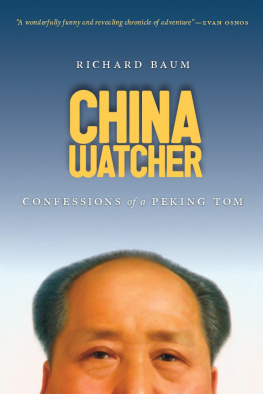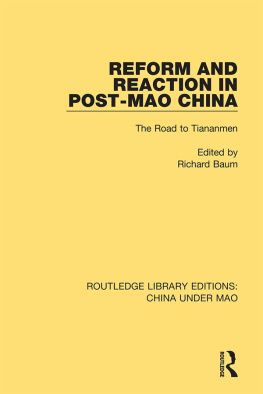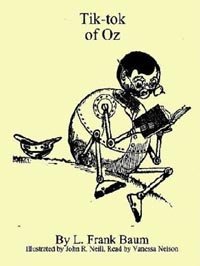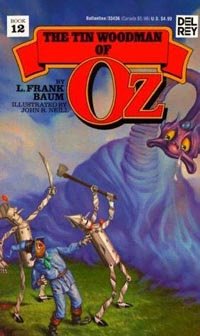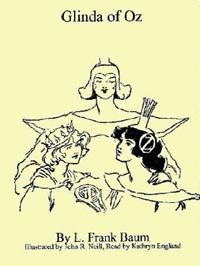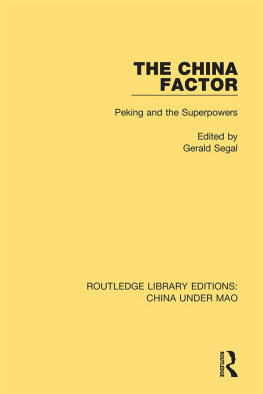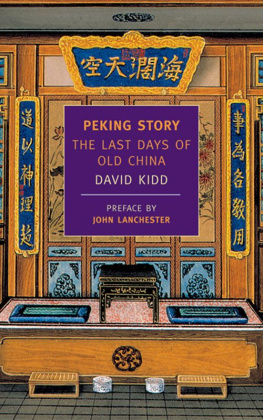CHINA
WATCHER
CONFESSIONS of a PEKING TOM
RICHARD BAUM
A Samuel and Althea Stroum Book
UNIVERSITY OF WASHINGTON PRESS
Seattle and London
This book is published with the assistance of a grant from
the Samuel and Althea Stroum Endowed Book Fund.
2010 by the University of Washington Press
Printed in the United States of America
Design by Thomas Eykemans
15 14 13 12 11 10 5 4 3 2 1
All rights reserved. No part of this publication may be reproduced or transmitted in any form or by any means, electronic or mechanical, including photocopy, recording, or any information storage or retrieval system, without permission in writing from the publisher.
UNIVERSITY OF WASHINGTON PRESS
po Box 50096, Seattle, WA 98145, USA
www.washington.edu/uwpress
LIBRARY OF CONGRESS CATALOGING-IN-PUBLICATION DATA
Baum, Richard, 1940
China watcher : confessions of a Peking Tom / Richard Baum.
p. cm.
Includes bibliographical references and index.
ISBN 978-0-295-98997-6 (hardback : alk. paper)
1. Baum, Richard, 19402. SinologistsUnited StatesBiography. 3. College teachersUnited StatesBiography. 4. ChinaHistory1949 5. ChinaPolitics and government1949I. Title.
DS734.9.B38A3 2010
951.05092dc22
[B]
2009035336
The paper used in this publication is acid-free and 90 percent recycled from at least 50 percent post-consumer waste. It meets the minimum requirements of American National Standard for Information SciencesPermanence of Paper for Printed
Library Materials, ANSI Z39.48-1984.
Unless otherwise noted, all photographs are by Richard Baum.
eISBN: 9780295800219
For my mentors
Robert A. Scalapino
Chalmers Johnson
and
in memoriam
H. Arthur Steiner
Foreword
THAT THE U.S.-CHINA relationship is the most important of the twenty-first century has become a truismlikewise that the rise of China is, for us, both a challenge and an opportunity. But few understand that the way to deal with the challenge is to take full advantage of the opportunity. Richard Baum's fascinating and refreshingly honest account of his forty years of China watching offers readers in both countries a key ingredient for resolving this riddle: information and insight about the other side.
For Americans, this shows how an experienced, highly trained specialist sees Chinese realitiesbut in a personal, rather than an academic, mode. For Chinese, it is a candid display, told with goodwill, of how an American China watcher of integrity views their country. Some of Professor Baum's views on China are quite different from my own, but I firmly believe that Americans and Chinese alike should read his book.
China watchers are a unique breed. Fifty years ago, when I was an insider in Beijing, I considered their writings on China to be hopelessly superficial and even ludicrous. I had access to classified informationwhat did they know?
It soon turned out, however, that while I knew the trees better than they did, they knew the forest. They were right about some of the large issues that I, on the inside, couldn't see. Of course, when I say they, I am referring to serious, unbiased China scholars like the author of this book, not to professional China bashers. Americans who wish to get an accurate, workable understanding of China need to refer to American China scholars as well as to authoritative information from China itself. Arrogant nationalism (often masquerading as patriotism) or simplistic China bashing based on political or ideological agendas can lead us into a swamp of misunderstanding and counterproductive behavior.
I heartily commend Professor Baum's book to thoughtful readers on both sides of the Pacificor, for that matter, throughout all the Seven Seas.
SIDNEY RITTENBERG
Member, Chinese Communist Party, 194678
Author, The Man Who Stayed Behind
Preface
SINCE FIRST PEERING into the Chinese looking glass from a Hong Kong hilltop in 1968, during the tumultuous Cultural Revolution, I have spent my academic career puzzling over the ever-changing political landscape of contemporary China. Over that forty-year span I have witnessed the death throes of radical Maoism, the birth contractions of the post-Mao reform era, the emotional upheavals of the Tiananmen Square student demonstrations (and subsequent bloody repression), and the risesome say peaceful, some notof a globalized, marketized Chinese economic powerhouse. In an effort to make sense of these momentous changes, I have written several books and made more than three dozen trips to China, traveling to twenty-three of its twenty-seven provinces, lecturing at fourteen of its universities, and speaking with thousands of Chinese people, from senior Politburo leaders to ordinary peasants and workers.
Having been deeply immersed in the study of Chinese politics for such a long time, my reactions to what I have seen and heard have been complex, varied, and sometimes quite intense. By inclination neither a credulous panda hugger nor a cynical China basher, I have at times been deeply moved and inspired by what I have witnessed in China; at other times I have been just as deeply dismayed and appalled.
Throughout my career I have struggled to maintain a certain professional distance and detachment from my object of study. Keeping China at arm's length has not been easy. Objectivity is an elusive grail, and facts do not alwaysor oftenspeak for themselves. Events like the Cultural Revolution and the Tiananmen massacre strain one's capacity for dispassionate analysis. Personal sentiments and emotions seep in unannounced, subjectively skewing and coloring one's perceptions.
In writing this book, focusing on China's convoluted journey from Maoism to modernity, I have discarded my customary impersonal, scholarly mode of presentation. Gathering together a wide variety of previously undisclosed personal experiences, observations, impressions, and anecdotes, I have endeavored to weave these into an accessible, user-friendly guide to China's post-Mao development. This is China up close and personal, a record of one man's intellectual and emotional odysseyincluding a fair number of embarrassing misstepsthrough the ever-changing, ever-fascinating landscape of a renascent, reinvented Middle Kingdom.
The book is written largely, but not entirely, in the first-person singular. Its point of view shifts periodically from the perspective of the watcher to that of the watchedand back again. And there are only two solitary footnotes in its three hundred pages of text. Unable to shed completely the habits of a lifetime, however, I have appended at the end of the book a set of supplemental notes keyed to the narrative content of each individual chapter. The payoff for this dual sacrifice of clinical detachment and meticulous documentation is, I hope, a gain in the depth, texture, and spontaneity that come from authentic, unsanitized personal reflection and introspection, grounded in a lifetime of observation and experience.
MY INDEBTEDNESS to colleagues and friends who contributed to shaping this enterprisesome consciously, some notis enormous. First, to my University of California mentors, Robert A. Scalapino, Chalmers Johnson, and the late H. Arthur Steiner, I owe the inspiration that kindled a lifetime of fascination with Chinese politics. The idea for this particular book grew out of a suggestion by Barbara Pillsbury, who several years ago urged me to record some of my more amusing China-watching adventures. Once I started down that road, I found it hard to stop.

